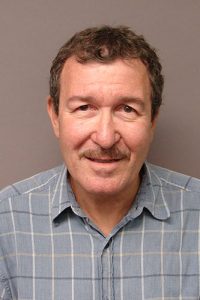
Ph.D.
Curators' Distinguished Professor
Biochemistry - CAFNR
Research at a glance
Area(s) of Expertise
Research Summary
Our laboratory studies the initiation of inflammatory disorders such as autoimmune, cardiovascular and Alzheimer’s diseases and cancer, and we have found that blocking cell receptors that recognize the release of the molecule ATP from damaged cells prevents chronic inflammation which preserves tissue function. In mouse models of autoimmune Sjögren’s disease, we have demonstrated that inhibiting these ATP receptors prevents chronic immune cell activation in salivary and lacrimal gland to enhance saliva and tear secretion, respectively. Recently, we demonstrated that blocking the ATP receptors also retards tumor growth in mice, and we are now testing whether these approaches will prevent these chronic disorders in humans.
Nucleotide receptors (P2 receptors) are present in nearly all cells and tissues where they mediate diverse functions including the regulation of platelet aggregation, muscle contraction, neurotransmission, insulin secretion, epithelial ion transport, wound healing and cell growth. We have isolated the first human P2 receptor gene and expressed it in mammalian cell lines that normally lack this receptor. These expression systems have enabled us to identify and purify the P2 receptor protein and current research is directed towards investigating structural features of the receptor that affect its functions. We have cloned or obtained 11 different P2 receptor subtypes belonging to 2 different receptor superfamilies and we are investigating the mechanisms of receptor activation, desensitization, and signal transduction in a variety of tissues in relation to normal physiological functions and disease.
We have undertaken efforts to determine the molecular mechanisms whereby activation of P2 receptors can be employed for the treatment of human disease. Studies have: 1) determined the intracellular pathways that enable P2 receptors to promote chloride secretion in cystic fibrosis (CF) epithelium to effectively bypass the genetic defect in chloride transport that underlies CF; 2) investigated the integrin-like properties of P2 receptors in the cardiovascular system in relation to the effects of extracellular nucleotides on platelet aggregation, vasorelaxation and contraction, atherogenesis and inflammatory responses mediated by monocyte adherence to endothelium, responses that are associated with the early stages of atherosclerosis and diabetes; 3) evaluated the role of P2 receptors in neuronal apoptosis and reactive astrogliosis associated with Alzheimer’s and other neurodegenerative diseases; 4) determined the role of nucleotide receptors in salivary gland inflammation and regeneration to design better treatments for autoimmune Sjögren’s disease; and 5) identified the molecular mechanisms whereby blocking P2 receptors prevent tumor formation. Our laboratory possesses the relevant molecular reagents and cell and animal systems needed to progress this research and participating graduate students gain experience in a variety of techniques in molecular and cell biology and translational biochemistry.
Educational background
- Ph.D., Chemistry, University of Nebraska, 1982
Courses taught
- Medical School Patient-based Learning